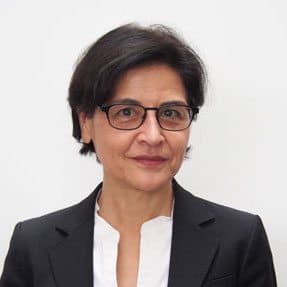
Germany is a huge SME and VSME (very small business) credit market. But it is not as mature a market for online marketplace lending as the UK, the US, or even the Netherlands. This partly explains why Funding Circle Germany’s early loan book underperformed. Now the platform is starting afresh to match its market’s reality. We spoke to Thorsten Seeger, the new Managing Director for Germany.

The Post-Acquisition Funding Circle Germany
Why the need to restart? Firstly, because the German and with it all Continental European operations of Funding Circle were unsettled a year ago by the departure of Matthias Knecht, the co-founder and CEO of Zencap which Funding Circle acquired in October 2015 to form a Continental European division. With offices and business in Germany, the Netherlands and Spain, Zencap had originated €35 million in loans to 500 SMEs at the time of its acquisition. Its operations were very small in comparison with the more than $1.5 billion originated by Funding Circle in the US and the UK at the time (meanwhile Funding Circle passed the $3 billion mark). But Matthias Knecht’s aimed at growing the Continental business at an accelerated pace, much in the style of the Rocket Internet network of tech startups Zencap was part of.
In the months following the acquisition, it became apparent that this acceleration strategy was not endorsed by Samir Desai, the co-founder and global CEO of Funding Circle.
 Indeed, after the departure of Matthias Knecht in June 2016, Funding Circle stopped issuing new loans in Spain and drastically slowed down the German business. The Continental European operations moved under the management of Panni Morshedi, Head of International Expansion at Funding Circle, based in London. Christian Grobe, Zencap’s co-founder and the company’s COO also left shortly thereafter.
Indeed, after the departure of Matthias Knecht in June 2016, Funding Circle stopped issuing new loans in Spain and drastically slowed down the German business. The Continental European operations moved under the management of Panni Morshedi, Head of International Expansion at Funding Circle, based in London. Christian Grobe, Zencap’s co-founder and the company’s COO also left shortly thereafter.
In January 2017, after Funding Circle raised $100 million in Series F from investors led by Accel Partners, the company completed the restructuring of its Continental European operations: Spain which had originated only €16 million worth of loans, was shut down; a new team was appointed to run Germany. The Netherlands’ operations were left under the management of Jeroen Broekema, Managing Director since the start.
Samir Desai, the global CEO of Funding Circle, stated;
“We will continue to invest in Europe in Germany and Holland, where we are growing fast, and we hope to enter new countries in the future.”
Recalibrating the German Lending Operations
 The second reason for starting afresh, was a need to revisit the credit model. Since January, the new German team has been busy recalibrating and restarting the German operations. The team is headed by Thorsten Seeger, Managing Director for Germany, supported by Belkacem Krimi, Chief Risk Officer for Continental Europe. Both bring to this market a wealth of operational experience. Thorsten Seeger was Head of Financial Markets for SME at the Lloyds Banking Group in London where he managed SME financing across all asset classes. Before that he held various positions focused on serving SMEs at Barclays, also in London. Krimi was Chief Risk and Compliance Officer at GE Capital where he managed risk for over $10 billon worth of consumer credit and commercial assets for France and overseas territories.
The second reason for starting afresh, was a need to revisit the credit model. Since January, the new German team has been busy recalibrating and restarting the German operations. The team is headed by Thorsten Seeger, Managing Director for Germany, supported by Belkacem Krimi, Chief Risk Officer for Continental Europe. Both bring to this market a wealth of operational experience. Thorsten Seeger was Head of Financial Markets for SME at the Lloyds Banking Group in London where he managed SME financing across all asset classes. Before that he held various positions focused on serving SMEs at Barclays, also in London. Krimi was Chief Risk and Compliance Officer at GE Capital where he managed risk for over $10 billon worth of consumer credit and commercial assets for France and overseas territories.
On July 13, 2017, for the first time ever, the German platform posted its loan book statistics on the web site. This shows that the pre-acquisition loan book has a default rate of 9% and an average negative return of -1%. The high default rate then continued in the first half of 2016. In the second half of 2016, credit conditions were drastically tightened, interest rate raised, and loan volume shrunk from €14.9 million to €4 million.
Loan origination resumed at previous level in the first half of 2017 and is expected to grow again in the second half of this year.
| Pre-acquisition | Post-acquisition | |||
|---|---|---|---|---|
| 2014/2015 | 2016 H1 | 2016 H2 | 2017 H1 | |
| Loans originated (in €) | 33,218,000 | 14,489,000 | 3,982,000 | 14,871,800 |
| Repaid (in %) | 62.37% | 32.84% | 19.08% | 4.48% |
| Overdue > 45 days (in %) | 1.02 | 2.86 | 0 | 0 |
| Defauts > 90 days (in %) | 8.81 | 6.72 | 1.11 | 0 |
| Annual return (in %) | -1.06 | 2.04 | 6.8 | 9.14 |
| Average Age in Months | 24 | 15 | 7 | 2 |
In a message to investors, German management acknowledges the default issue and explains how it has been working to fix it:
“At the beginning of 2016, we realized that the historic Zencap portfolio was performing below our expectations. We immediately adjusted our interest rates and tightened our credit conditions. In addition, we restructured the German business and reorganized the management team. This led to a controlled but significant reduction in our lending activity in the second half of 2016. Since the introduction of these changes, we are seeing a significant improvement in the performance of the new loans. Today, we are back to sustainable growth and provide more than 4 million euros to German companies every month.”
German SME Lending has a Strong Potential but Remains a Tough Market
So, what is in the cards for Funding Circle Germany now? Thorsten Seeger is very confident it the measures he and his team have put into place, and in particular in the new quantitative credit model they have deployed.
He’s also very confident in Funding Circle’s opportunity in the German market:
“Germany has a huge potential. People believe that Germany is overbanked, that money is very cheap for companies, hence, that there is no marketplace lending opportunity. While that may be true for the so-called “Mittlestand” of companies making between €40 million and €50 million in revenue, it is not true for the butcher around the corner and the car repair shop owner who employ fewer than 10 people. These small and very small firms only have two options to get a credit: go to the regional cooperative bank, the Volksbank or to the local savings bank, the Sparkasse. For these small local banks, lending to SMEs and VSMEs is not an attractive proposition, it is too costly.”
 Seeger points to a recently published study by the German development bank, KFW, which attests of the SME’s difficulty to access credit:
Seeger points to a recently published study by the German development bank, KFW, which attests of the SME’s difficulty to access credit:
“Small and medium-sized enterprises, in particular, report on a deterioration in the level of credit. Some 26.8% of small businesses with sales of up to €1 million report increased difficulties in accessing credit. This is about seven times as many as among companies with a turnover of more than €50 million. Young enterprises (younger than 6 years) are still more likely to report difficulties with borrowing, at 28.7%. Even large corporations report a deterioration of 3.8% more than in the previous year, albeit to a small extent.”
Still, the German market is clearly not as mature as the UK’s, the US’ or even the Netherlands’. This for two main reasons: SME maturity and regulation.
“Our biggest challenge is to recruit good SME borrowers. We must make sure that they know about us, consider us, and trust us. Once they get to know us, it is not too difficult to convert them. But German small businesses are relatively conservative. Some of them still want to communicate by fax! Data security is very important to them. It is a completely different context from, say, the Netherlands.” Thorsten Seeger explains.
To convince SME, Funding Circle will rely on creating a superior customer experience:
“Speed is very important. We can deliver a loan in 10 days from first approach to money on hand. But SMEs also want somebody who talks to them in a proactive, respectful way, instead of having to wait 6 weeks without any answer, as with some banks do. Our call center of 6 people on the borrower side creates a different experience.” Thorsten Seeger adds.
A second hurdle is the unfavorable regulatory framework. Unlike the British regulator, the German regulator, BaFin, has not taken up as part of its mission to support the emergence of alternative finance. Lending platforms are required to use a fronting bank. German investors who take risks financing SMEs do not benefit from any tax incentives and cannot even  deduct their losses. Here again, Thorsten Seeger prefers to be optimistic and sees small signs of positive change at BaFin. He hopes as well that the German government will seize the matter of SME finance.
deduct their losses. Here again, Thorsten Seeger prefers to be optimistic and sees small signs of positive change at BaFin. He hopes as well that the German government will seize the matter of SME finance.
In conclusion, I asked a keen observer of the German market, Claus Lehmann, from P2P Banking to comment:
“It too early to tell the impact of the changes at Funding Circle. The German market is very competitive and Funding Circle is not the first P2P lender who found out the hard way.”
 Therese Torris, PhD, is a Senior Contributing Editor to Crowdfund Insider. She is an entrepreneur and consultant in eFinance and eCommerce based in Paris. She has covered crowdfunding and P2P lending since the early days when Zopa was created in the United Kingdom. She was a director of research and consulting at Gartner Group Europe, Senior VP at Forrester Research and Content VP at Twenga. She publishes a French personal finance blog, Le Blog Finance Pratique.
Therese Torris, PhD, is a Senior Contributing Editor to Crowdfund Insider. She is an entrepreneur and consultant in eFinance and eCommerce based in Paris. She has covered crowdfunding and P2P lending since the early days when Zopa was created in the United Kingdom. She was a director of research and consulting at Gartner Group Europe, Senior VP at Forrester Research and Content VP at Twenga. She publishes a French personal finance blog, Le Blog Finance Pratique.

